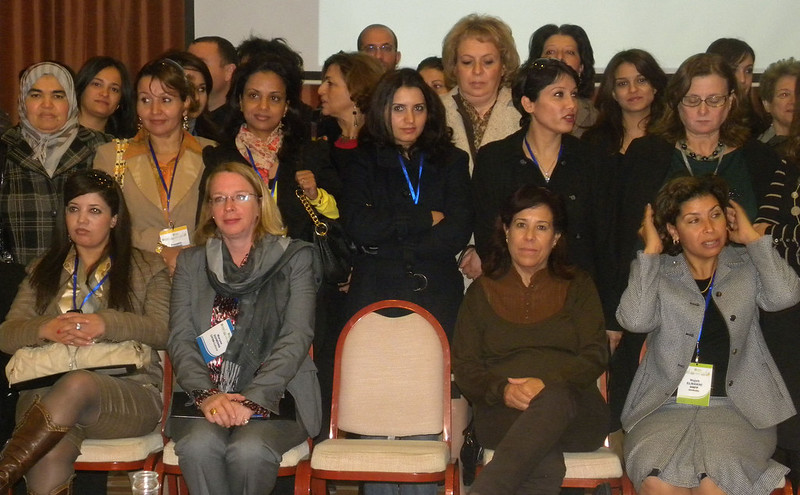Having An Impact: NGOs In Tunisia
 Tunisia, the northernmost African country, is classified as a developing country by the International Monetary Fund (IMF). It boasts a unique culture, characterized by a blend of European and Middle Eastern influences and reveals promising prospects for economic well-being. However, it faces several significant barriers to development. These include a rising debt burden, worsened by the COVID-19 pandemic, which has hindered Tunisia’s ability to borrow from foreign organizations and an alarming youth unemployment rate of 40%. Tunisia is actively working to rectify these ongoing issues and the efforts of nongovernmental organizations (NGOs) play a crucial role in alleviating the common roadblocks faced by developing countries, providing essential assistance globally.
Tunisia, the northernmost African country, is classified as a developing country by the International Monetary Fund (IMF). It boasts a unique culture, characterized by a blend of European and Middle Eastern influences and reveals promising prospects for economic well-being. However, it faces several significant barriers to development. These include a rising debt burden, worsened by the COVID-19 pandemic, which has hindered Tunisia’s ability to borrow from foreign organizations and an alarming youth unemployment rate of 40%. Tunisia is actively working to rectify these ongoing issues and the efforts of nongovernmental organizations (NGOs) play a crucial role in alleviating the common roadblocks faced by developing countries, providing essential assistance globally.
FISTA
The First Step Together Association (FISTA), is one of the NGOs operating in Tunisia, with a primary focus on at-risk youth, in particular those with cognitive impairments and learning disabilities. Since its humble beginnings in 1989, as a reed-built school housing nine children, FISTA has gradually expanded its operations to cover and support the needs of adolescents impacted by learning disabilities outside of just North Lebanon. The work of FISTA is crucial. Youth with learning disabilities are all too often disregarded even in nations not classified as developing countries.
Another initiative from FISTA, in partnership with UNICEF, is its internship program. This pre-vocational program specifically targets increasing diversity and inclusion in the workforce and empowers those with disabilities or other factors impacting their success to find their footing. The initiative funded a program that engaged eight young individuals in two-month training programs for various trades, including haircutting, mechanical work and restaurant work. Empowering those with disabilities to secure sustainable income is vital in reducing Tunisia’s youth unemployment rate of 40%.
Assen
The Association de Soutien aux Enfants (Children’s Support Association, also known as ASSEN) is an NGO based in Tunisia that supports women and children in the country, particularly by aiding low-income women who aspire to become entrepreneurs. ASSEN focuses on what it calls “micro-projects.” For example, by funding small-scale projects such as building new breeding broilers, ASSEN significantly impacts the economy, aiding a group that might otherwise remain underrepresented. Targeting initiatives like these effectively assists the economy by creating more jobs and enabling those without resources to achieve personal goals and contribute economically.
Islamic Relief Worldwide
Islamic Relief Worldwide (IRW) is an NGO operating primarily in Muslim countries, including a chapter based in Tunisia. Its operations are notably diverse, with programs to assist Tunisian youth through educational initiatives similar to those of FISTA and others focused on supporting the country’s sustainability needs. IRW assists Tunisia in achieving its developmental goals by empowering farmers with the tools and technical knowledge necessary to thrive in the country’s sometimes challenging climate.
In a specific instance, IRW responded to a call for assistance in the Kebili province of Tunisia, a region challenging for farmers due to its climate. When heavy sandstorms in 2017 damaged farmers’ equipment and jeopardized their productivity, IRW intervened. With the organization’s help, 276 farmers received new greenhouses to replace those lost. In a follow-up to this program, 66 farmers received new resources and vocational training to further aid their operations. Supporting Tunisia’s farmers aligns directly with the country’s broader interests and the impact of programs like this from Islamic Relief Worldwide continues to be felt at the moment.
Islamic Relief and Schools
Another example of IRW impacting Tunisia involves its efforts to improve the health and safety of schools in the region. A common challenge faced by Tunisian schools is the lack of access to basic washing facilities, which contributes to poor hygienic standards and the inadvertent spread of diseases such as hepatitis and COVID-19. Additionally, poor infrastructure planning has resulted in many unisex bathrooms, increasing the risk of sexual violence and abuse for many youths. To address these issues, Islamic Relief conducted sessions to stress the importance of hygiene and installed necessary hygiene facilities in schools, benefiting an estimated 75,000 students. Addressing hygiene issues has been a significant game changer, as approximately 100,000 students previously dropped out due to the lack of proper hygienic facilities in schools.
Looking Ahead
NGOs play a pivotal role in addressing Tunisia’s developmental challenges, particularly in areas such as youth unemployment, education and agricultural sustainability. Organizations like FISTA, ASSEN and Islamic Relief Worldwide are implementing targeted initiatives that provide essential support to vulnerable populations, including at-risk youth and low-income women. Through vocational training, micro-projects and improvements in education and agricultural infrastructure, these NGOs in Tunisia contribute significantly to Tunisia’s efforts to overcome its economic hurdles and enhance overall well-being.
– Malik Vega
Malik is based in Miami, FL, USA and focuses on Good News for The Borgen Project.
Photo: Flickr
